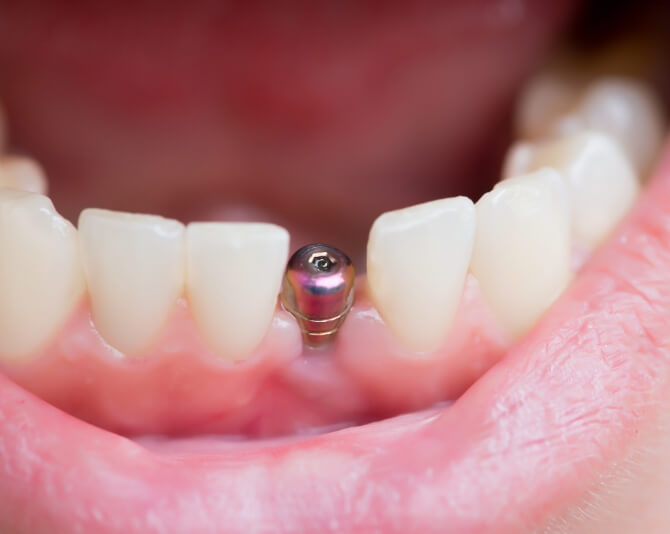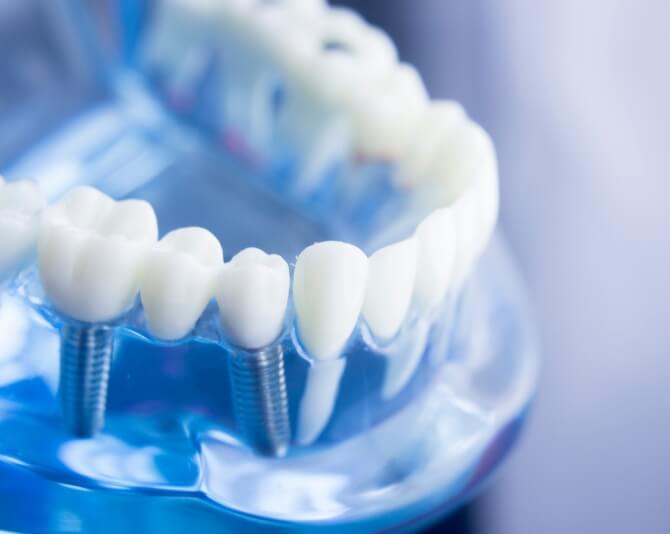Dental Implant Failure & Salvage Edison
Getting Your Restored Smile Back on Track

Dental implants are successful in over 95% of cases. In fact, they last a lifetime for most people! However, it is realistic to be aware of the possibility of dental implant failure. When you know what signs to watch out for, you put yourself in a position to seek necessary treatment in a timely manner. If your implants ever encounter a problem, Dr. Shah and our team are ready to help. Dr. Shah’s specialized training and advanced technology equip him to perform effective and conservative dental implant salvage.
Why Do Dental Implants Fail?

The most common cause of dental implant failure is an infection called peri-implantitis. It occurs when harmful bacteria attack the tissue around an implant. In its early stages, it is reversible and may not cause any long-term damage. If it progresses, however, it can destroy an implant’s base of support and ultimately cause implant failure in Edison.
Other possible reasons for a failed implant include failed osseointegration (the implant never properly bonds with the surrounding tissue), trauma, systemic health issues, and missteps during the treatment process. Most implant dentists in Edison are extremely careful, but the possibility for human error underscores how important it is to partner with a practitioner like Dr. Shah who is truly a dental implant expert.
Symptoms of Failed Dental Implants

Dental implant failure can be divided into two general categories. Early failure occurs shortly after the implant is placed in the jawbone, while late failure can occur any time after osseointegration. It might even happen decades after the initial placement.
Early and late dental implant failure have some similar symptoms, including:
- Pain and swelling. Some discomfort is normal after implant placement surgery, but severe pain is a red flag.
- Other signs of infection. Pus, a foul taste in the mouth, bad breath, and bleeding gums can all indicate an infection.
- An implant feels loose. In some cases, it might feel loose because the restoration is damaged. In other cases, the problem is the implant itself.
- Difficulty chewing. After your implants are restored, you should be able to eat virtually anything without pain. Difficulty chewing tough foods may indicate a problem.
How Dental Implant Salvage Works

Contact our team as soon as you suspect there is a problem with your implants. Dr. Shah, an experienced prosthodontist in Edison and dental implant expert, will examine your mouth, learn about your symptoms, and use advanced technology to understand what is happening beneath your gumline. Then, he will devise a treatment plan. In some cases, it is possible to address a problem without removing the implant. You might just need some antibiotics or some adjustments to your oral hygiene routine. A new restoration might also be necessary.
If significant tissue damage has occurred around the implants, Dr. Shah might have to remove them altogether. Then, you might need a bone graft as well as treatment for any infection that may have occurred. After your mouth has healed adequately, you may be able to receive a new implant.



